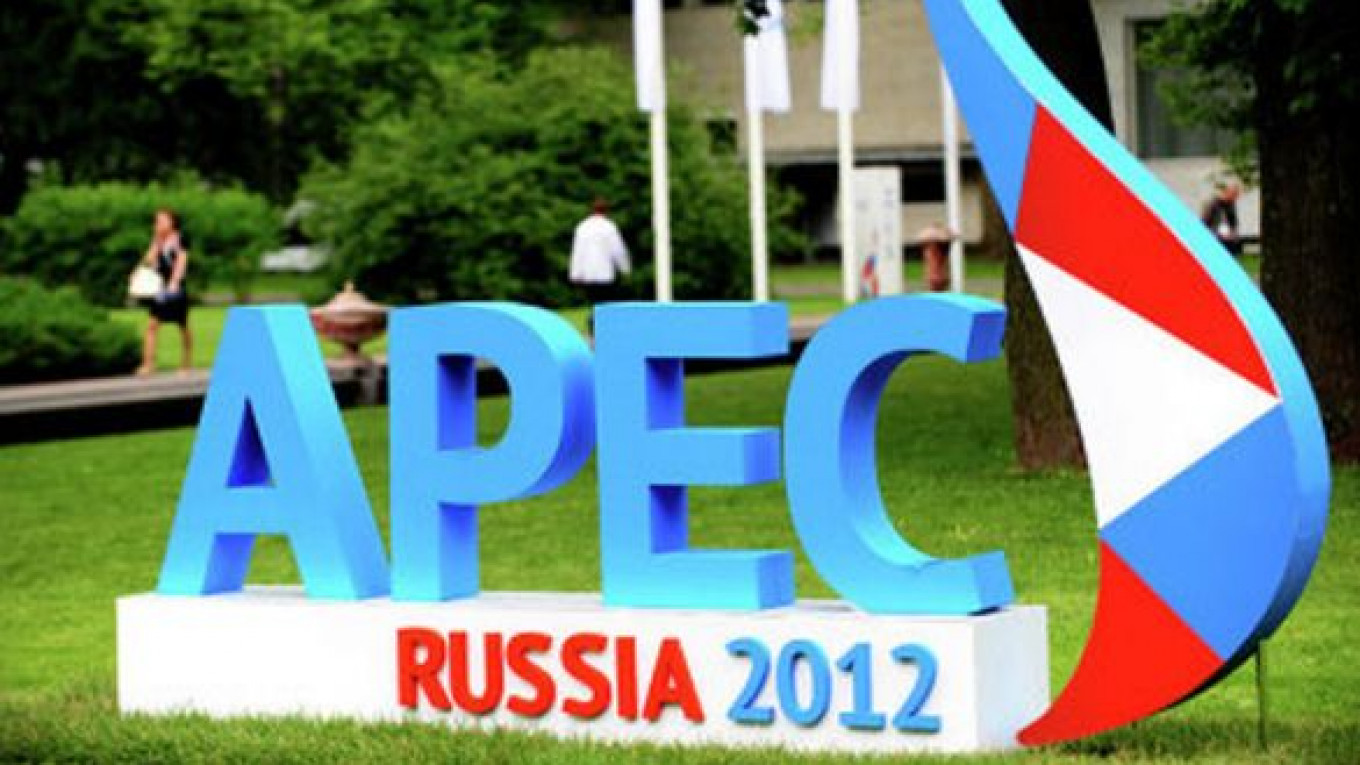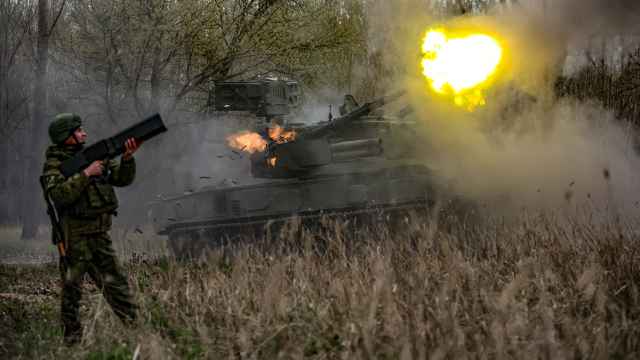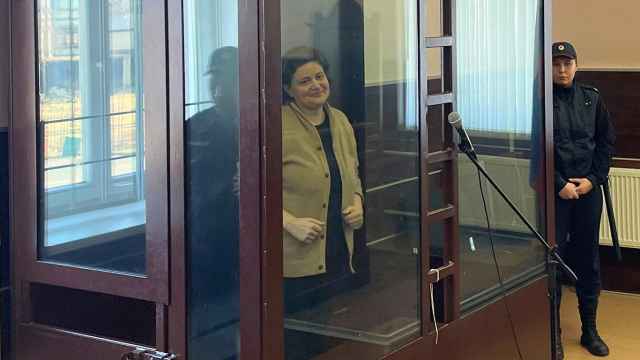Business leaders are hoping to use the upcoming Asia-Pacific Economic Cooperation summit in Vladivostok as a catalyst to increase Russia’s importance as a transit nation, which could generate $600 billion for APEC economies over the coming decade.
Cultivating economic and political ties with countries bordering Russia’s Far East and committing to a program of internal investment will eliminate bottlenecks currently restricting use of the Trans-Siberian rail route, Maxim Golovinov, leading project manager at the APEC National Business Center, told reporters in Moscow on Thursday.
“The Russian strategy is, of course, to turn itself into a bridge between Europe and Asia,” he said.
The APEC National Business Center is a noncommercial body that represents the interests of Russian business to APEC. Only some of the country’s top companies are members, but they include oil pipeline monopoly Transneft, VTB Bank, infrastructure investor Summa Group, billionaire Oleg Deripaska’s Basic Element and the Skolkovo Foundation.
Boosting the use of Russian infrastructure is one of its priorities.
The overland route through Siberia from Europe to Asia is three times quicker than the sea route via the Suez Canal, said APEC National Business Center chairman Vladimir Andrusik, and “the southern sea route is overloaded.”
According to research released by PriceWaterhouseCoopers on Thursday, trade between APEC countries is set to almost triple from $5.7 billion last year to $14.6 billion in 2021.
A $20 billion investment program in the infrastructure of west-to-east transport corridors would help Russia take advantage of this growth and generate about $600 billion for the Asia-Pacific region’s economy through 2020, Andrusik said.
If such a program were carried out, the volume of cargo being transported across Russia could also increase fivefold by 2020, Golovinov said. Shipping companies running cargoes through Russia’s Arctic northeast passage could also benefit, he said.
The key factor underpinning growth, however, will be the level of internal investment in infrastructure networks.
“The Russian Federation is in an ideal geographical position as a corridor between East and West, [but] it is not able to fulfill its potential because of logistical restrictions,” said Oleg Danilin, a partner at Ernst & Young.
But while business leaders and top officials will be discussing infrastructure development during the summit in Vladivostok between Sept. 2 and Sept. 9, they will be creating transportation problems for local residents.
Fuel rationing will be introduced in Vladivostok during the APEC gathering to protect conference delegates from local traffic congestion, according to media reports.
Related articles:
A Message from The Moscow Times:
Dear readers,
We are facing unprecedented challenges. Russia's Prosecutor General's Office has designated The Moscow Times as an "undesirable" organization, criminalizing our work and putting our staff at risk of prosecution. This follows our earlier unjust labeling as a "foreign agent."
These actions are direct attempts to silence independent journalism in Russia. The authorities claim our work "discredits the decisions of the Russian leadership." We see things differently: we strive to provide accurate, unbiased reporting on Russia.
We, the journalists of The Moscow Times, refuse to be silenced. But to continue our work, we need your help.
Your support, no matter how small, makes a world of difference. If you can, please support us monthly starting from just $2. It's quick to set up, and every contribution makes a significant impact.
By supporting The Moscow Times, you're defending open, independent journalism in the face of repression. Thank you for standing with us.
Remind me later.







